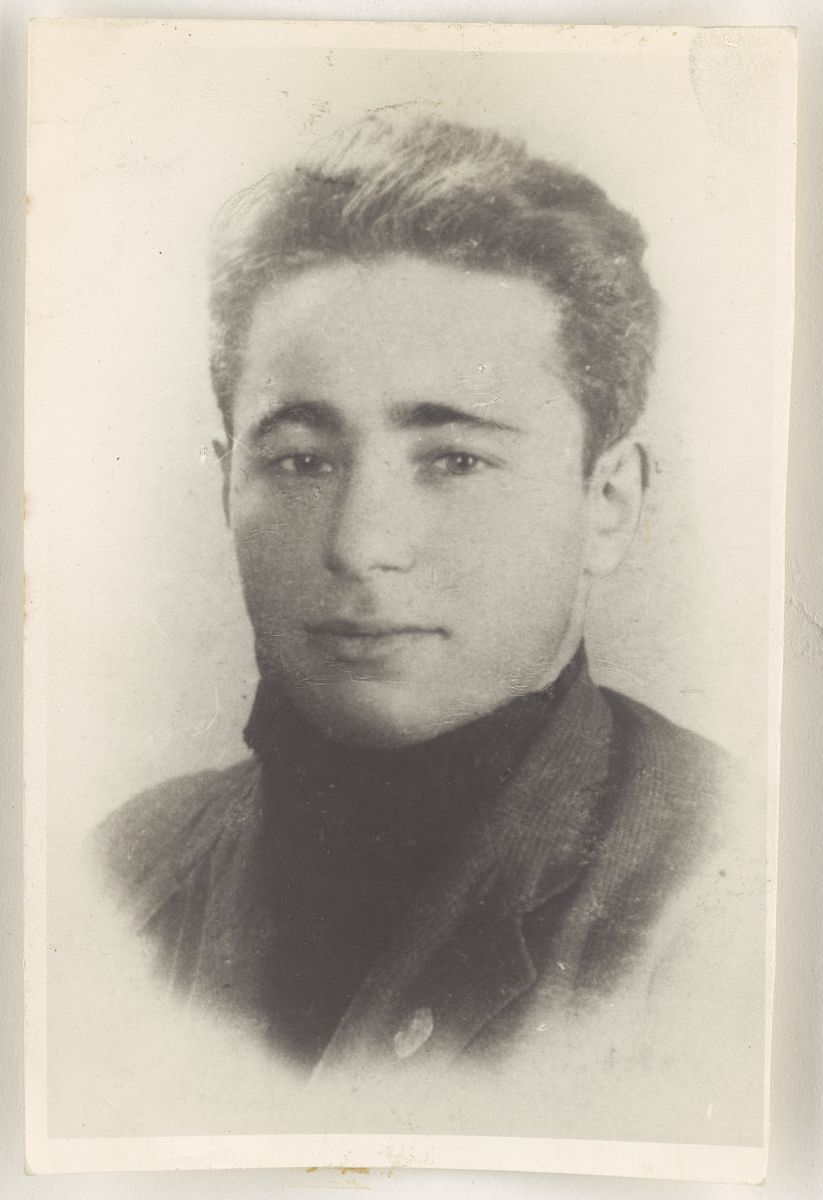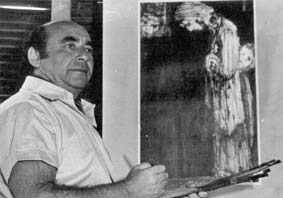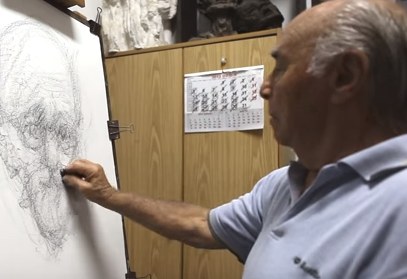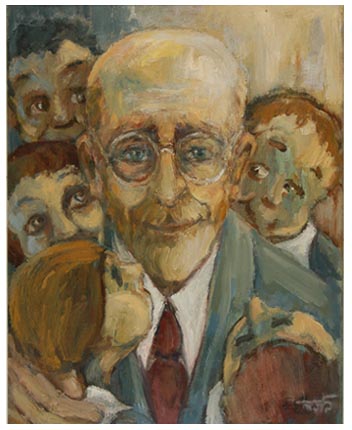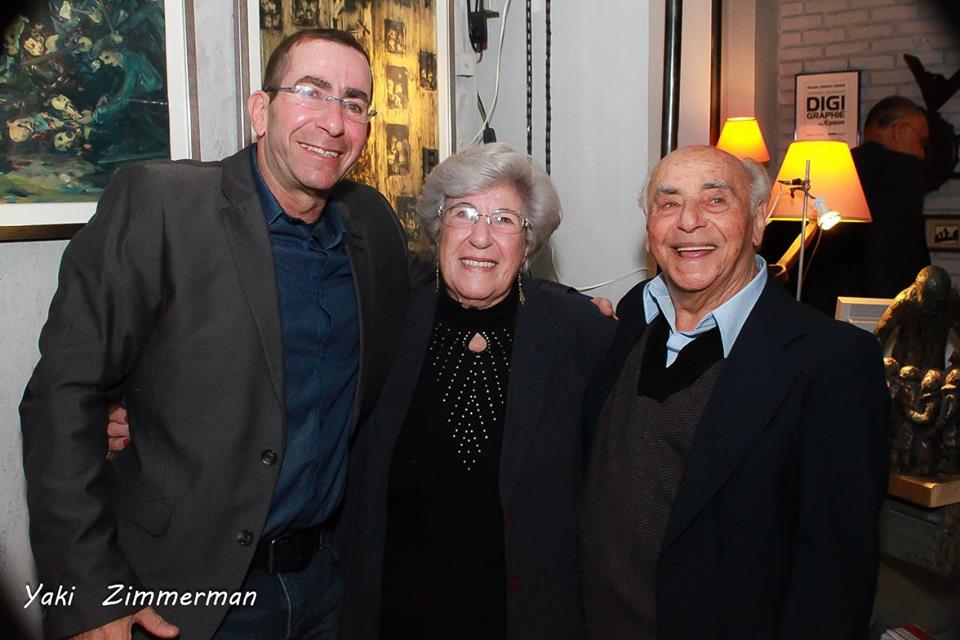Itzchak Belfer was born in February 1923 in Warsaw- Poland. His father was a simple merchant and his mother took care of six children.
Itzchak lost his father when he was four years old and the family’s financial situation deteriorated. The family lived together with his grandparents in a small house in Warsaw’s suburbs. Itzchak was given his first education in a “Heder” since his family was religious – his grandfather was a charity collector in the local synagogue.
When he was seven years old in 1930 in light of the family’s financial situation and the will to give Itzchak a meaningful education, his mother decided to try and apply to Janusz Korczak special orphanage home.
Janusz Korczak interviewed Itzchak and his mother briefly and then decided to accept Itzchak to his orphanage home.
Itzchak has had seven most wonderful and meaningful years in this orphanage home which was situated at 92 Krochmalna street in Warsaw. During those years he studied in a local school and lived in the orphanage home with 104 children in different ages. Itzchak visited his family regularly during those years.
In the orphanage home Stepha Vilichenska (Korczak right hand) encouraged and supported Itzchak to start drawing, hence he began his first steps in this field.
In the end of the acceptable studying period in the orphanage home, Itzchak applied for a year of volunteering and continued to help there.
In the age of 15 (1938) Itzchak graduated his studies and went back to his family to help in supporting them financially.
When World War II broke out (1939), the Nazi forces conquered Poland. Their harsh, cruel and inhuman hands started hitting the Jews of Warsaw who suffered humiliations, physical violence and trampling their dignity and freedom.
Itzchak who was educated on Korczak’s doctrine of respect to others and honesty ,when he was a young child, couldn’t perceive the Nazi’s attitude and therefore decided, at 17, to run away from Poland and join the Russian forces in order to fight against the German conqueror.
Itzchak and his friend approached Korczak to get his blessing which he gave them and even equipped them with allowance.
In 1940 the journey of the two began by heading to Russia with the constant threat of the Nazis who practically were everywhere and always.
It was a journey that could have been taken from a science fiction movie of dark era where people were hunted like animals.
Itzchak succeeded to pass the border to Russia to a place called Malkini where refugees gathered in a refugee camp.
After few weeks he started his way as a refugee roaming through Russia and working as a coal miner in the Ural Mountains till the beginning of 1941.
Then he migrated to Tashkent where he was drafted to the Red Army and was stationed in one of the cavalry regiments. When the battalion was disarmed Itzchak was sent to work in a factory until the war ended.
In 1946 Itzchak returned to Warsaw hoping to find his family however, there he realized the magnitude of the disaster. Itzchak found Warsaw in ruins, thus understanding that neither his close family nor the orphanage home had survived, everyone was murdered by the Nazis’ hands in Treblinka concentration camp.
Together with thousands of the holocaust refugees Itzchak began his wondering in Europe. From Poland he went to Czechoslovakia, then to Austria and finally to Italy. On his way he was in temporary camps and in bigger gathering places until he reached Genoa where he met, for the first time, a member of the Jewish Agency who was calling the Jews to make “Aliya” to Israel. Itzchak joined the group of refugees who went on the “Af Al Pi Chen” ship, today this ship is stationed in the entrance of the city of Haifa and is used as a museum that illustrates the illegal immigration to Israel towards the end of the British Mandate period.
In 1947 the ship went on its way to the shores of Israel. When the refugees arrived the ship was stopped by British soldiers and they were sent to restrained camps in Cyprus.
Itzchak had stayed in those camps for two years (1947-1948), and there he expanded his artistic education in sketching and sculpting with the help of the sculptor Zeev Ben Zvi. Itzchak even worked as an artist  in the winter camps.
After being released from the camps in 1948, Itzchak immediately immigrated to Israel and was drafted to the IDF. He served as a soldier for two years.
Itzchak has been living in Tel Aviv since the day he came to Israel. He began his way as a resident of “Machlul” neighborhood and lived in a tent.
In 1961, when he was 39 he met Rosa his future wife and a year later Haim, his only child, was born.
When he was 42 Itzchak completed his academic artistic and sculpting studies in Avni institute and was accepted to be a member in the artist and sculptures union.
In Tel Aviv municipality Itzchak has done various jobs and on his last role, he was appointed as the artistic advisor of Tel Aviv. At the same time Itzchak initiated drawing classes for the municipality workers and their families.
In 1976, Itzchak joined the staff of the Public University in Tel Aviv and was an art lecturer till 2007.
Itzchak retired when he was 60 years old. Since then, for over 30 years, he dedicates his life to art and volunteer work. This work is of commemoration which combines art, education and the heritage from the orphanage home in Janusz Korczak way. Furthermore he is a living testimony to the tragedy of the Jewish people during the holocaust.
From the beginning of his artistic way in Israel Itzchak dedicates his talent  to commemorating the holocaust and Janusz Korczak legacy. Itzchak has been drawing for years in black and white. For the last 30 years he has been drawing themes of the holocaust in oil paint, water color and pastel color, in addition he combines all sorts of techniques and continues to s

